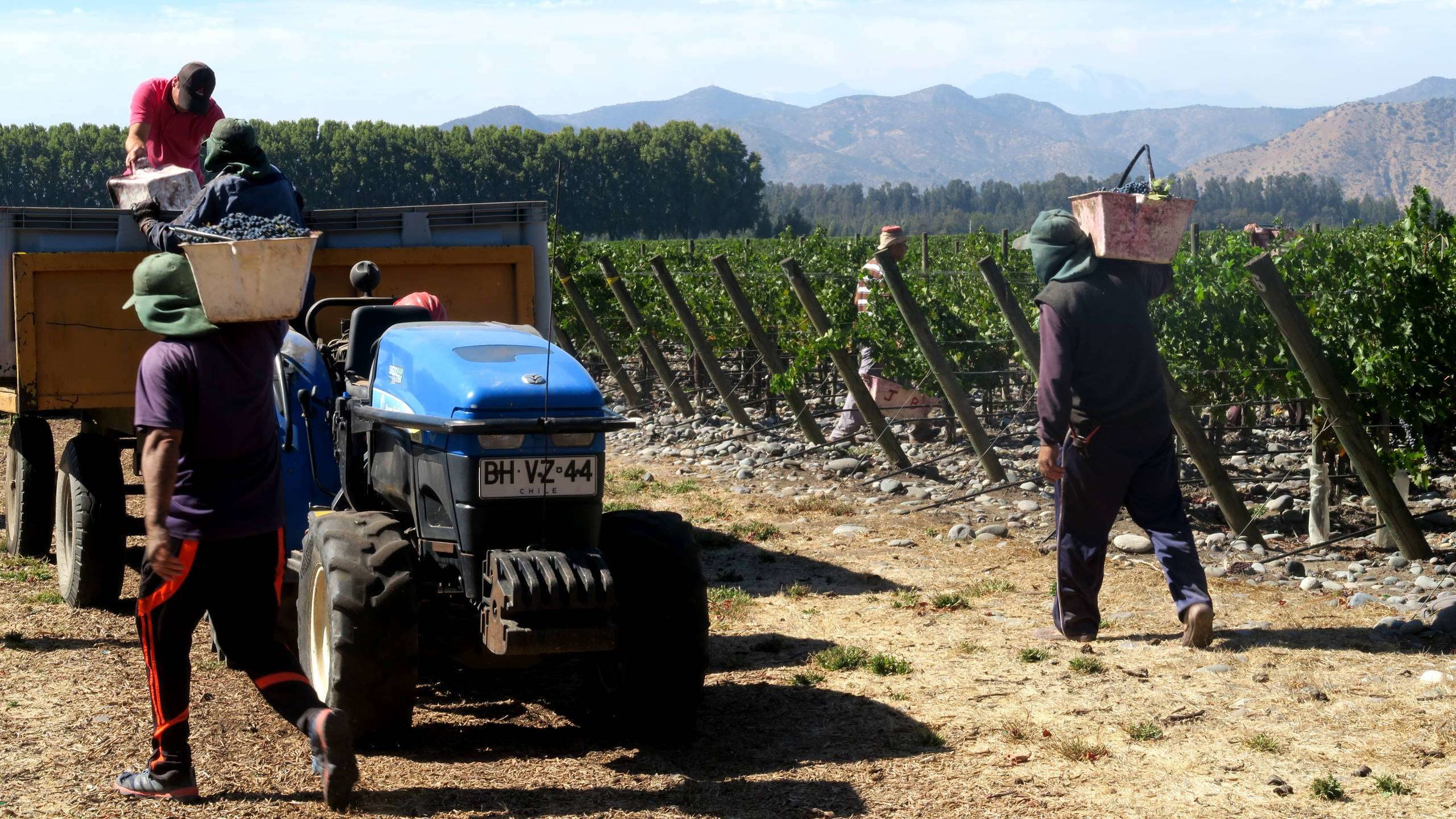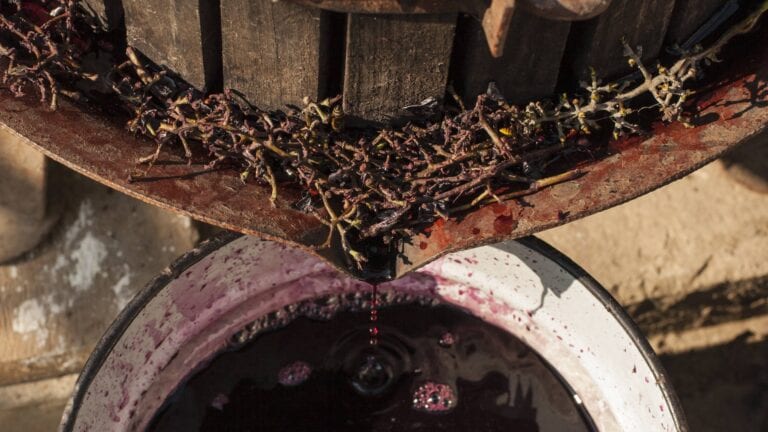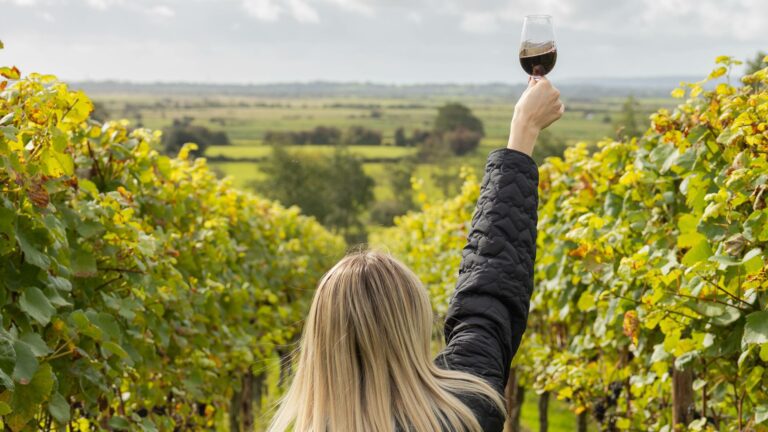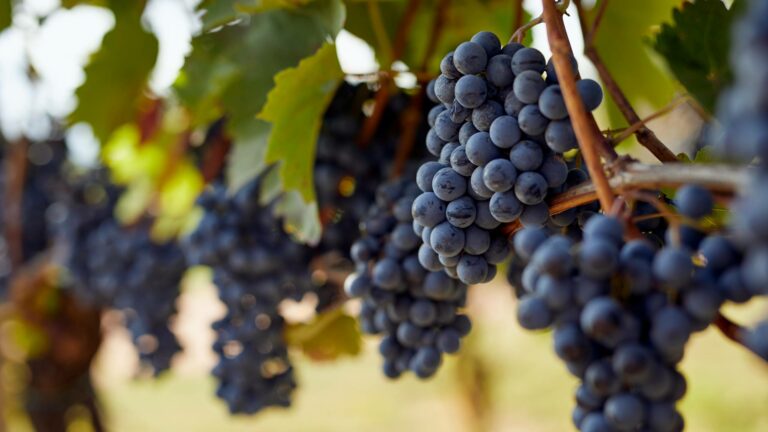Few will disagree on the beauty of wine. It brings together friends over a nice dinner and inspires conversation. It allows us to enjoy the art of the winemaker and appreciate the generous gift of nature. Yet we seldom stop to think of how much we depend on nature and how careful we have to treat it. Since its inception in 1934, De Martino has shown leadership in producing wines with the highest respect for nature.
Not only is De Martino one of the first and leading producers of organic wines in Chile, cultivating over 300 hectares of organic vineyard, it is also the first carbon-neutral winery in the world allowed to sell carbon credits, which it generates itself through a state-of-the art waste water treatment method. And De Martino is a champion in the conservation of our most precious of all resources: water.
Water for Life
Climate change, population growth and changing diets are putting severe stresses on water availability. Already 1.1 billion people don’t have access to enough and clean water and according to the UN this is expected to grow to 3 billion by 2025.
Of the world’s fresh water resources, 70% is used for cropland irrigation each year, compared to only 11% for domestic use. Taking into account the water needed for growing and producing fodder, it takes over 15,000 litres of water to produce one kilo of beef. Unsustainable extraction of water for irrigation has already caused structural declines in harvests in China, India and other parts of the world. Water conservation in agriculture is essential for the sustainability of life on earth and world leaders are increasingly recognizing that water scarcity will impact the lives of billions of people before climate change does.
Leadership in Water Conservation
The central region of Chile is one of many areas in the world that is expected to increasingly suffer from water stress. For this reason, De Martino has made enormous efforts to become a champion in agricultural water conservation. While vineyards in many parts of the world are still irrigated through flooding, drip irrigation installed in all of De Martino’s estates reduces water use by 50-70%. Besides saving precious water, the drip system allows for fertigation, the much more precise application of nutrients. This method reduces the amount of fertilizer used by 20%, while increasing the quality of the grapes, due to a more evenly distributed supply of water and nutrients.
In the winery, De Martino has adopted a large number of best practices to minimize water use, reducing total water use per litre of wine produced to around 3.7 litres, almost half of the industry average. De Martino’s USD 1.5 million state-of-the-art wastewater treatment method has earned it the honour of being the first winery in the world to be registered under the UN Kyoto Protocol’s Clean Development Mechanism. The treated water is made available to other farmers downstream for irrigation. All resources at De Martino are reused and recycled as much as possible. Grape skins are composted and returned to the vineyard as fertilizer, while organic viticulture uses insects rather than pesticides, to control pests.
Pietro De Martino says about De Martino’s water saving efforts: “Water and sunlight are the cornerstones of life. Without them, humanity will be in big trouble. Preserving water is a logical consequence of De Martino’s respect for nature. Our philosophy is to reduce and reuse all resources whenever possible. It also shows solidarity with other farmers and villages in the region, who will have more water available because of De Martino’s saving efforts. Some of our most spectacular wines, such as the Single Vineyard Las Cruces, are produced from dry farms, without a single drop of irrigation, showing the amazing resilience of the vine. In fact, vines often produce a more concentrated, better grape when they get limited water, which allows us to produce better wines. ”
De Martino’s leadership in sustainable winemaking and talent for creating wines that are the reflection of their origin, earned the winery the title of ‘Winery of the Year 2011’, awarded by its peers in the Chilean wine sector. And with the sustainable way the family winery is treating its land and water resources, we should be able to enjoy De Martino wines for many generations to come.





